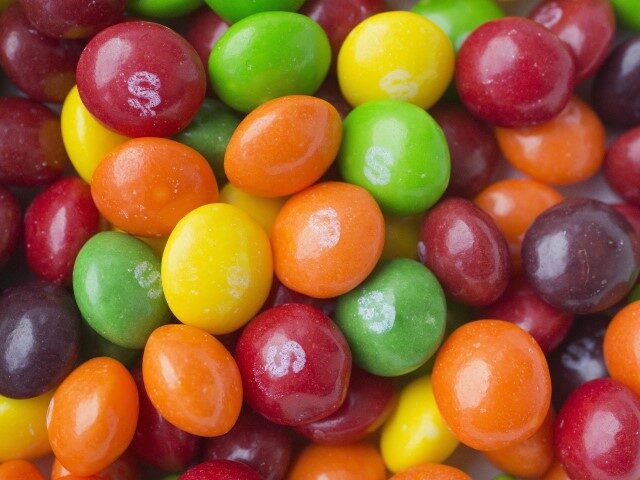The California Assembly passed a bill last week which would ban five allegedly toxic chemicals commonly found in candies like PEZ, Skittles, and Hot Tamales.
This is the first bill in the nation which would ban red dye No. 3, titanium dioxide, potassium bromate, brominated vegetable oil, and propyl paraben, California Globe reported. Assemblyman Jesse Gabriel (D) introduced Assembly Bill 418 in February, and he modeled the restrictions after the European Union’s ban on the five chemicals.
Gabriel said in a press release:
Today’s strong vote is a major step forward in our effort to protect children and families in California from dangerous and toxic chemicals in our food supply. It’s unacceptable that the U.S. is so far behind the rest of the world when it comes to banning these dangerous additives. We don’t love our children any less than they do in Europe, and it’s not too much to ask food and beverage manufacturers to switch to the safer alternative ingredients that they already use in Europe and so many other nations around the globe.
However, the National Confectioners Association (NCA) slammed the measure in March.
The NCA said in a statement:
Chocolate and candy are safe to enjoy, as they have been for centuries. We strongly oppose AB 418 because there is no evidence to support banning the ingredients listed in the bill. The ingredients that would be banned under this proposal have all been approved by the U.S. Food and Drug Administration. Food safety is the number one priority for U.S. confectionery companies, and we do not use any ingredients in our products that do not comply with the FDA’s strictest safety standards.
Scientific studies have shown a link between red dye No.3 and cancer, as well as behavioral problems. In the 1990s,the Food and Drug Administration (FDA) banned the chemical for use in cosmetics, but it is still allowed in food, according to Consumer Reports. Last October, food experts petitioned the FDA to prohibit its use in food and dietary supplements.
Among the five chemicals there is scientific research pointing to an increased risk of cancer, behavioral issues in children, harm to the reproductive system, and damage to the immune system, according to the press release from Gabriel announcing the passage of the bill.
Major brands like Dunkin Donuts, Coke, Gatorade, and Panera have already stopped using these chemicals in their goods, the press release said.
The Senate is expected to vote on the bill before the end of the legislative session on September 14. If it is passed and becomes law, food manufacturers and distributors will have until January 1, 2025, to make the changes.

COMMENTS
Please let us know if you're having issues with commenting.